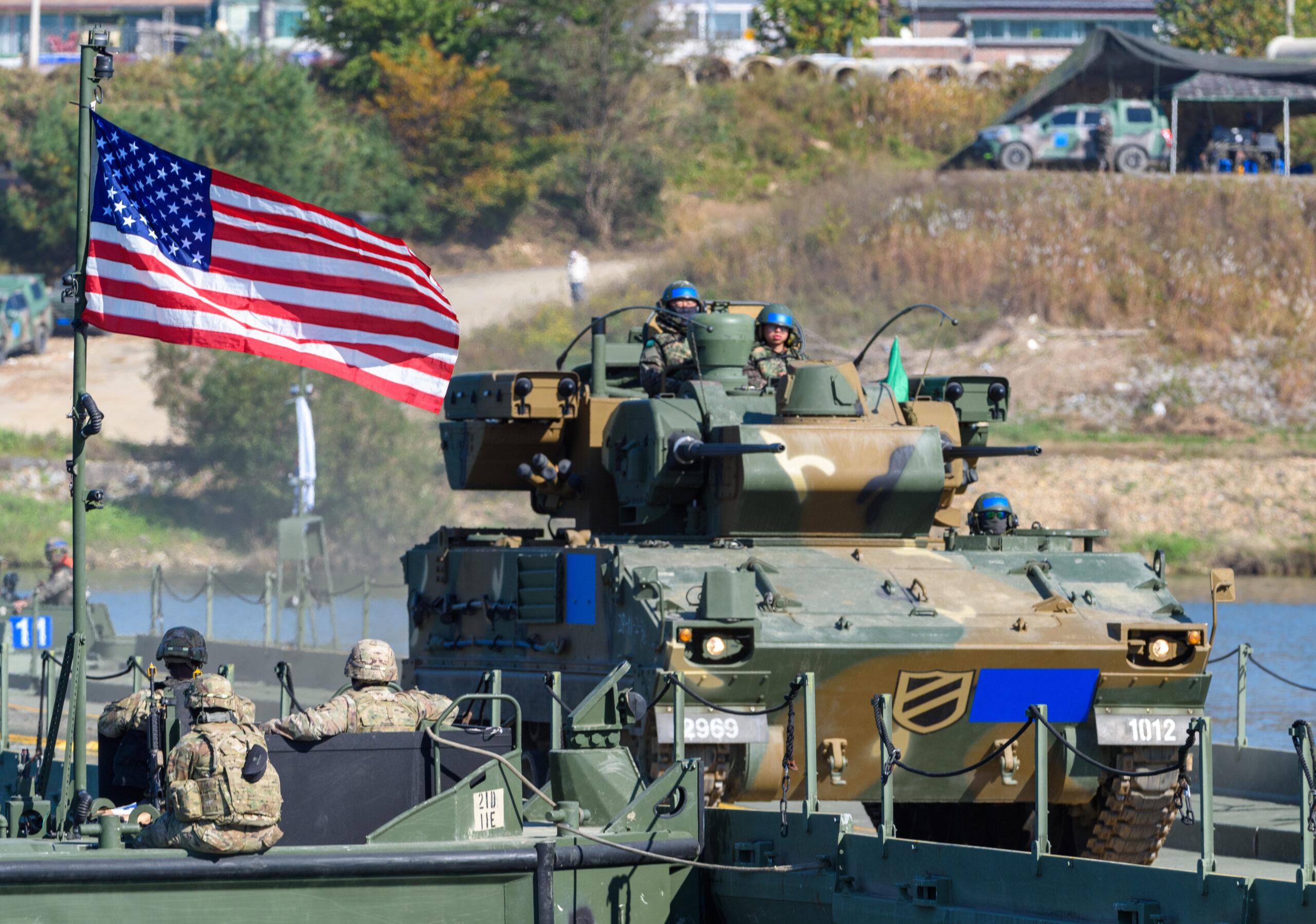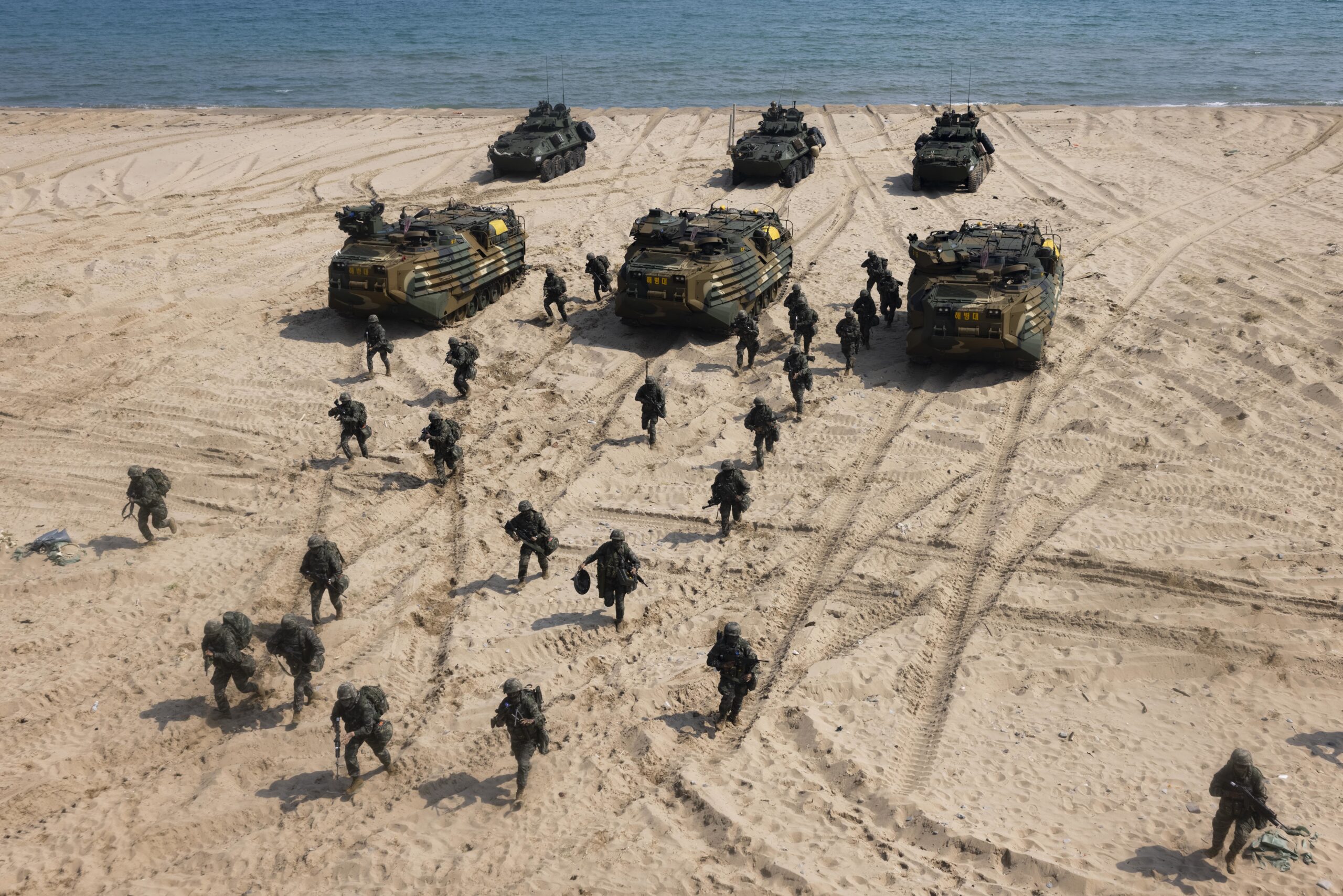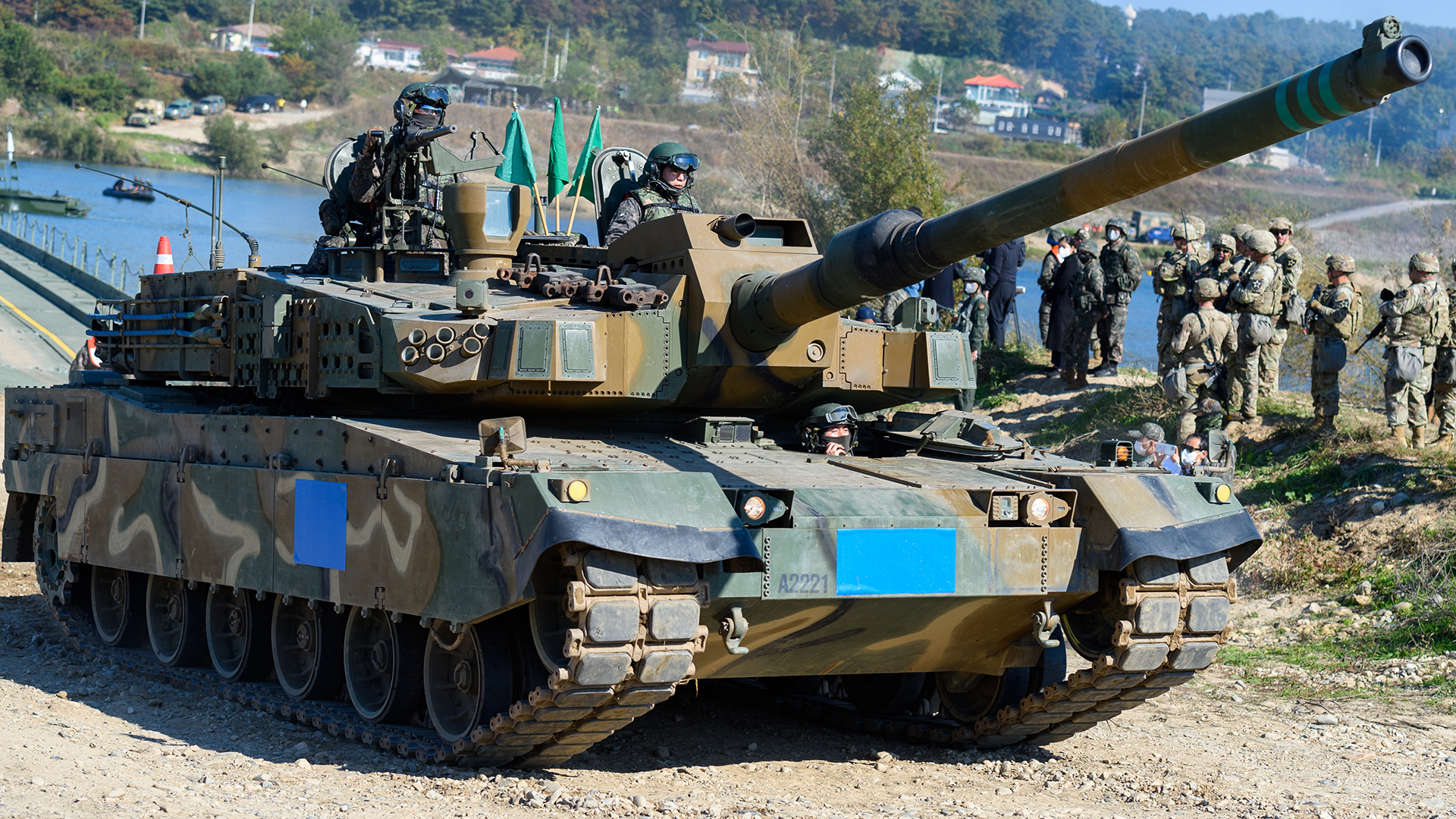The South Korean military will resume drills along the border with its hostile northern neighbor after Pyongyang sent about a thousand balloons filled with poop and garbage wafting south in waves last week. Amid increasing tensions on the peninsula, South Korea suspended a six-year-old pact with the North pausing such actions as a result, at least in part, of the balloon barrages.
Seoul announced Tuesday that the government will “suspend the entire ‘September 19 Military Agreement’ until mutual trust between South and North Korea is restored,” the South Korean Ministry of National Defense (MND) stated. That 2018 agreement between two nations still technically at war included “setting up buffer zones around the border to suspend large-scale military drills, as well as banning ‘hostile’ acts between the two Koreas, which restricted loudspeaker broadcasts,” according to the Yonhap News Agency.
Those broadcasts have included psychological warfare bashing Kim Jong-un’s human rights abuses, news and K-pop songs. They have infuriated the North, whose citizens have been largely isolated from the rest of the world.
The agreement was already on shaky ground after “North Korea itself declared the virtual complete abrogation” of it on Nov. 23, 2023, the MND stated. That’s when Pyongyang successfully launched a military spy satellite, Yonhap reported. “That removed the no-fly zones around the border to allow the South to resume reconnaissance and surveillance activities in the area,” the publication wrote.
“The full suspension of the pact will allow South Korea to resume military training near the border and restart loudspeaker propaganda broadcasts into the North,” according to Yonhap. That’s “certain to infuriate North Korea and may prompt it to take its own provocative countermeasures along the border,” The Associated Press reported.

Though the balloons caused no serious damage, the volume and scope outraged South Korea and sparked the deployment of its military chemical, biological, radiological response teams and bomb disposal units to ensure they posed no threat. You can read more about that in our initial story here.
Kim Kang Il, a North Korean vice defense minister, said Sunday that the North was ending its balloon campaign because it already left the South Koreans with “enough experience of how much unpleasant[ness] they feel,” The Associated Press reported.
Still, for South Korea, the balloons were the final straw in a series of provocations by Kim Jong-un, the MND stated. That list includes coastal artillery fire, missile launches south of the Northern Limit Line, the maritime boundary between the two nations, Guard Post “shooting provocations,” and small drone infiltration.
After “North Korea failed to launch a so-called military reconnaissance satellite on May 27, it seriously threatened the safety of our people and even caused property damage by disrupting GPS, launching missiles, and distributing large-scale waste balloons,” the MND complained. “Accordingly, the government decided to suspend the entire effect” of the tension reduction pact “so that our military is no longer restricted from military activities to protect the lives and property of the people.”

The South Korean final decision to fully suspend the 2018 agreement came just two days after U.S. Defense Secretary Lloyd J. Austin III, Japan Defense Minister Kihara Minoru, and Republic of Korea (ROK) Minister of National Defense Shin Won-sik convened a Trilateral Ministerial Meeting in Singapore.
There, the three leaders agreed to execute the “first iteration of the new, multi-domain trilateral exercise, Freedom Edge, this summer,” according to the Pentagon. “They reaffirmed that trilateral exercises will be executed in a systematic manner in accordance with the multi-year trilateral exercise plan, which was established last year following the August 2023 Camp David Summit.”
They also condemned North Korea’s “recent diversification of nuclear delivery systems, tests and launches of multiple ballistic missiles, the launches of what [North Korea] purports to be a military reconnaissance satellite using ballistic missile technology, illicit ship-to-ship transfers, and arms shipments with Russia as clear violations of multiple” United Nations Security Council Resolutions.
In addition, the U.S. “reaffirmed its ironclad commitment to the defense of Japan and the ROK, emphasizing its commitment is backed by the full range of U.S. capabilities, including conventional and nuclear.”

While it’s always hard to gauge how the enigmatic North Korean despot will react to South Korea’s actions, this latest move is yet another sign of a degrading security situation in an already very troubled region.
Contact the author: howard@thewarzone.com
